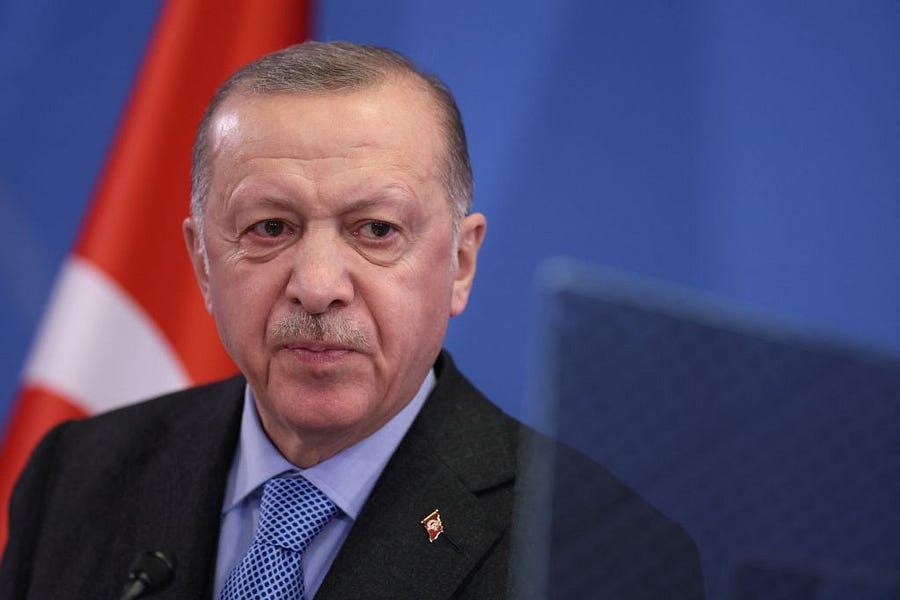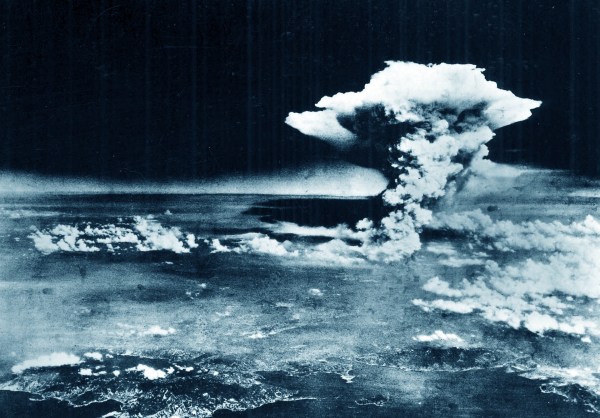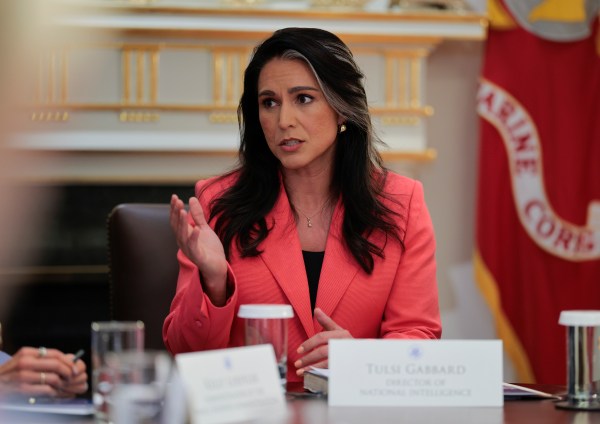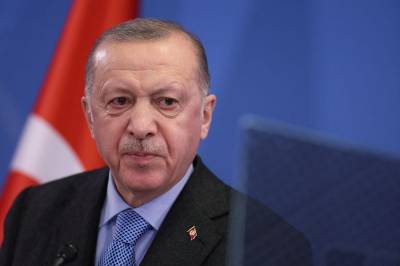Despite the fulminations of the Kremlin’s television propagandists and Russian bureaucrats seeking to anticipate the dictator’s views, it appears that Vladimir Putin has “no problem” with Finland and Sweden joining NATO. Despite earlier threats by a variety of Russian officials that the Nordic neutrals joining NATO would provoke “military-technical” reactions, including the possible deployment of nuclear weapons, it seems that Putin has bowed to the inevitable after a calm, respectful phone call with Finland’s impressive and statesmanlike President Sauli Niinisto. Despite Putin’s retreat, Turkey’s authoritarian boss Recep Tayyip Erdoğan has suddenly interposed his own objections, saying at first that Turkey was “not favorable” to Finland and Sweden’s membership in NATO and subsequently doubling down, arguing that, “We will not say ‘yes’ to those [countries] who apply sanctions to Turkey.”
Erdoğan’s view seems to represent a change of heart from earlier Turkish support for Finnish membership, conveyed to Niinisto in an April 4 phone call and in bilateral diplomatic contacts, not to mention Turkey’s traditional support for NATO’s enlargement since the end of the Cold War. The Turkish volte face reportedly has left diplomats at NATO headquarters in Brussels furious with the Turks, despite the public statements that all is well and the clear expectation that the alliance ultimately will move forward with Finnish and Swedish membership.
In this regard, the Turkish authoritarian and kleptocrat seems to resemble no one more than former Illinois governor and convicted felon Rod Blagojevich who, when he found out he could appoint Barack Obama's successor to the U.S. Senate, famously said, “I've got this thing and it's f---ing golden. I'm not just giving it up for f---ing nothing.” Erdoğan sees the Finnish and Swedish application for membership as an opportunity to accomplish multiple objectives—burnishing his domestic position by highlighting the important international role he plays and gaining leverage with both the West and his difficult and complicated Russian neighbor.
In the first instance, we should recall that Erdoğan and the Turks have done this before in the NATO context. First in 2009, when then-Danish Prime Minister Anders Fogh Rasmussen was on the verge of being appointed NATO secretary general and then again in 2019 when Turkish diplomats blocked NATO defense plans for the Baltic states and Poland. The pretext for threatening to veto Rasmussen was the “scandal” over the cartoons of the Prophet Muhammed published by the Danish newspaper Jyllands-Posten four years earlier. President Barack Obama’s first NATO summit ended up almost entirely consumed by negotiations with Erdoğan over measures to placate the Turkish leader’s alleged rage over Rasmussen’s insult to Muslims worldwide because of his defense of free expression. It turned out that Erdoğan’s concerns were perhaps more prosaic than principled: He later told Turkish television that he had relented after President Obama had promised that Rasmussen would have a Turkish deputy and that Turkish general officers would be better represented at NATO headquarters.
In the second instance, NATO had drawn up defense plans for Estonia, Latvia, Lithuania, and Poland at the latter’s request in the wake of Russia’s annexation of Crimea and destabilization of eastern Ukraine in 2014. The alliance approved the plans at the December 2018 NATO London Summit, but Turkey blocked implementation, demanding that NATO recognize the Kurdish YPG militia in Syria as a terrorist group. After six months of intransigence Turkey finally lifted its objection under pressure from the rest of the allies.
Erdoğan's “strongman” need for constant attention and his failure, so far, to secure a bilateral meeting with Biden or to establish the kind of access he enjoyed to the U.S. president under both Obama and Trump undoubtedly explain the Turkish leader’s initial reaction. Just as it took Obama’s persuasive efforts in 2009 to talk Erdoğan off the ledge regarding Rasmussen, I suspect President Biden will have to spend a disproportionate amount of time sweet-talking and jaw-boning Erdoğan to drop his opposition to Finland and Sweden. The opportunity cost will be high since the NATO summit in June should be focused on responding to Russian aggression and NATO’s new strategic concept in the light of rapidly changing security conditions in Europe.
Recognition by foreign leaders of Erdoğan’s international role serves more than to stroke his ego: It also serves an important domestic political need. As Turkey approaches elections in 2023, Erdoğan’s poll numbers have been sagging. He is undoubtedly calculating that the NATO spotlight will not just reinforce his international importance to the Turkish public the but tying the issue to Sweden’s support for Kurdish nationalists will predictably whip up Turkish nationalism. That can handily also serve as a distraction from the economic management disaster that Erdoğan has created in Turkey by his insistence on keeping interest rates low. The result has been a 70 percent inflation rate and enormous hardship for the Turkish public and businesses.
Erdoğan, however, is also looking for international leverage with both the U.S. and Russia and not just personal recognition. As is well known, Turkey’s purchase of the Russian S-400 air and missile defense system created a crisis in Turkey’s bilateral relationship with the U.S. and NATO. It led to Turkey’s expulsion from the F-35 program and the imposition of sanctions under the Countering America’s Adversaries Through Sanctions Act (CAATSA). In the wake of the F-35 cancellation, Turkey has recently approached the Biden administration seeking both upgrades to its existing F-16s and a request to purchase new, more advanced F-16s and associated weapons packages. A preliminary sale of upgrade kits and missiles worth about $300 million was recently informally notified to the Congress. Erdoğan may think that holding Finland and Sweden hostage will provide the Biden team with arguments on the Hill to proceed with these arms sales packages (both the preliminary package and the larger F-16 package that the Turks have requested). Erdoğan needs to proceed with caution, however, because as Mitch McConnell indicated in Helsinki on May 16, there is broad support for Finland and Sweden in Congress, and many members would like nothing better than to trade Turkey as a member for the two Nordic states. (There is no mechanism for kicking member states out of NATO, but this sentiment reflects Turkey’s loss of any real backing on Capitol Hill—which represents the toll that Erdoğan’s creeping authoritarianism and reflexive anti-Americanism has taken on Turkey’s much more robust support in the past).
Finally, Erdoğan may also calculate that creating a ruckus in NATO serves the purpose of endearing him to Putin and may redirect Russia's attention away from the ongoing supply of TB2 Bayraktar drones to Ukraine (one of the most effective weapons in Kyiv’s arsenal in destroying Russia’s invasion force), thus helping Erdoğan manage the complicated minuet he has been dancing with Putin—his closest “competimate”—for several years now.
It is almost certainly the case that Erdoğan and Turkey eventually will yield in the face of both blandishments and pressures from the other 29 allies in NATO and allow Finland and Sweden to take their place as capable and responsible allies, but not before he has reminded the rest of the alliance—once again—that an authoritarian Turkey remains an unpredictable and unreliable ally in a crucial geo-strategic location in the midst of Europe’s most serious crisis since the end of the Cold War.
Eric S. Edelman is a former U.S. ambassador to both Finland (1998-2001) and Turkey (2003-2005) and was undersecretary of defense for policy (2005-2009).






Please note that we at The Dispatch hold ourselves, our work, and our commenters to a higher standard than other places on the internet. We welcome comments that foster genuine debate or discussion—including comments critical of us or our work—but responses that include ad hominem attacks on fellow Dispatch members or are intended to stoke fear and anger may be moderated.
With your membership, you only have the ability to comment on The Morning Dispatch articles. Consider upgrading to join the conversation everywhere.